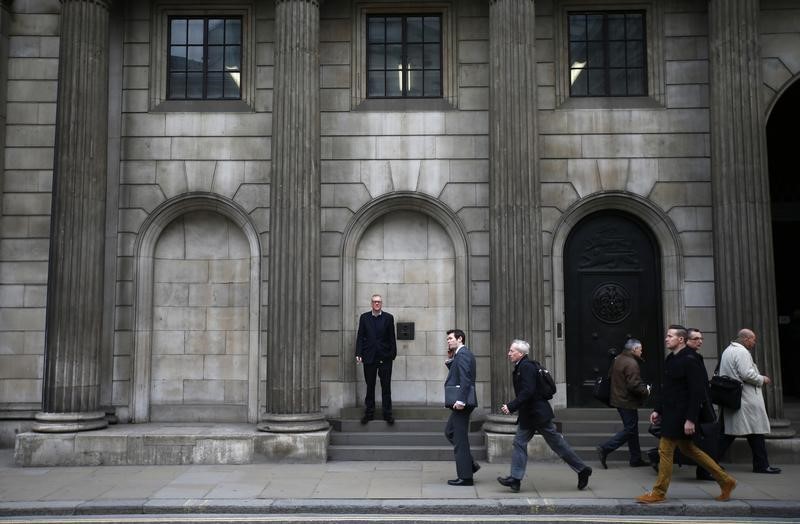By Nishant Kumar
LONDON (Reuters) - After watching billions of dollars of investor cash follow "star" managers exiting rivals, some Britain-based fund firms have taken a novel step to help cushion the blow: let the manager take their fund's assets with them.
Given a firm's value is based on taking a cut of the assets it holds, while investors only leave their cash with a manager on the basis of performance, asset managers have long sought to keep top performers sweet.
Yet competition to retain top talent is picking up, throwing the skills of top performers into even starker relief and leading some firms to strike profit-protecting deals.
In a year marked by the high-profile exit of Neil Woodford and more than $12 billion (£8.6 billion) from two of his Invesco Perpetual funds, the biggest outflows from a fund caused by a manager leaving in British fund history, three others, Waverton, Charles Stanley (L:CAY) and Henderson (L:HGGH), took a different tack by letting some assets leave while retaining some financial benefit.
The more collegiate approach is "quite an interesting new trend, where a star manager is able to take their fund with them, (which) counteracts the need for the first company to deal with the outflows that might arise," Jeremy Beckwith, director of manager research at Morningstar UK, said.
Beckwith said he knew of no previous examples of such deals.
Investors also flooded to the exit at Schroders (L:SDR) when Julie Dean left and, to a lesser extent, when Simon Brazier quit what is now Columbia Threadneedle Investments in September to join Investec Asset Management.
Together with Invesco, he three firms collectively saw outflows of more than $15 billion since the news of the departures became public, estimates from Lipper showed, though not all would be due to top figures leaving.
TRACK RECORD
Similar deals have also surfaced in the hedge funds industry.
BlueCrest recently let top trader Leda Braga leave with $9 billion in assets to set up a firm called Systematica, while David Warren, founder of DW Partners, took control of more than $5 billion he previously managed for Brevan Howard. BlueCrest and Brevan Howard both retained a stake.
For the fund firm the decision to let a manager leave with the assets means earning some fees on all the assets, rather than grabbing all the fees in a smaller fund.
The manager, on the other hand, is saved the effort of raising funds from scratch, while maintaining a performance track record which can be key for future flows.
As well as retaining some financial benefit in the fund's assets, the deals avoid a forced sale of a chunk of the fund to pay exiting investors.
In Waverton's case, Oliver Kelton left in February to join hedge fund Odey Asset Management, but continued to manage the Waverton European Fund.
At Henderson, Richard Pease left in October and, as per an existing agreement, took the European Special Situations Fund to his new firm, Crux Asset Management, giving Henderson a revenue sharing deal for a year, a spokesman for Henderson said.
Charles Stanley, meanwhile, sold its Matterley Undervalued Assets Fund to Miton in September, handing over the fund to former co-manager George Godber after an earlier period when the fund had moved with former fellow co-manager Henry Dixon to hedge fund GLG Partners.
Such deals are unlikely in every case, analysts said, as managers do not always leave on good terms, making it tough to negotiate an agreement.
But a deal can also benefit investors, who are saved the cost of moving funds, a likely response given how relatively unsuccessful UK fund firms have been at finding star replacements, a Cass Business School study showed.
"On average, when managers leave, you are going to get average performance after that," Cass professor Andrew Clare said. "So the (investor) instinct to leave is right."
